Navigating the emotional and legal complexities of a divorce can be challenging, and having the right information can make all the difference. This article will guide you through the essential elements of a notice for divorce proceedings, ensuring you understand your rights and obligations during this difficult time. Whether you're taking the first steps or responding to a notice, it's crucial to be well-informed about the process. So, let's dive in and empower you with the knowledge you need to move forward.

Clear Identification of Parties
In divorce proceedings, clear identification of parties is essential for legal precision. The plaintiff, commonly referred to as the petitioner, files the divorce petition in the local family court, while the defendant, or respondent, receives official notice of the action. Identifiers include full legal names, addresses, and any aliases used during the marriage. Important details such as the date of marriage (for instance, June 12, 2010) and place of marriage (like New York City, New York) should also be included. The documents may require the parties' social security numbers to streamline identification processes. Proper legal identification helps in ensuring accurate documentation and minimizes future complications in the court's handling of the divorce case.
Statement of Intent to Divorce
A Statement of Intent to Divorce serves as a formal declaration indicating a person's decision to pursue the dissolution of marriage. This essential document typically includes vital details such as the full names of both spouses, the date of marriage, and the date of separation. In many jurisdictions, specific legal terminology is mandated to ensure clarity and compliance with local family laws, potentially referencing statutes or codes relevant to divorce proceedings. The notice may also outline considerations regarding child custody arrangements, division of marital assets, and alimony requests, making it imperative for the statement to adhere to jurisdiction-specific requirements. Preparing this document often requires consultation with legal professionals to ensure that all procedural aspects are meticulously followed, thereby supporting a smooth transition through the often complex divorce process.
Legal References and Jurisdiction
Divorce proceedings typically require legal references, including jurisdiction, to establish the appropriate court and legal framework governing the dissolution of marriage. In the United States, family law falls under state law, meaning jurisdiction for divorce cases is usually in the state where either spouse resides. Key legal references such as the Uniform Marriage and Divorce Act and local statutes must be invoked. Specific courts, such as Family Court or Circuit Court, handle such cases in states like California or New York. Filing in the correct jurisdiction ensures adherence to state guidelines on property division, child custody, and support obligations. Additional considerations include residency requirements, which often specify that at least one spouse must have lived in the state for a designated period, typically six months to one year, before filing for divorce.
Specific Terms and Conditions
Legal proceedings surrounding divorce often involve specific terms and conditions that must be clearly articulated. Custody arrangements (for example, shared or sole custody), alimony obligations (monthly support payments for a certain duration post-divorce), division of assets (including properties, savings accounts, and retirement funds), and visitation schedules (specific days and times for parent-child interactions) are critical components that require thorough documentation. Additionally, issues regarding the division of debts (such as mortgage obligations or credit card liabilities) must be addressed. These terms ensure clarity and minimize disputes, facilitating a smoother legal process at places like family courts. It is vital for each party to have legal representation during these proceedings to navigate complex jurisdictional requirements and ensure fair treatment under the law.
Contact Information for Further Communication
In divorce proceedings, communication is crucial. Key contacts include legal representatives, mediators, and court clerks. The attorney's office, located at 123 Law St, Suite 456, Cityville, can be reached at (555) 123-4567 for inquiries regarding filings. The local family court, where cases are adjudicated, is situated at 789 Justice Blvd, Cityville. This court can provide information about scheduled hearings and document submissions. Additionally, mediation services can be accessed at 234 Peace Ave, Cityville. They offer sessions to facilitate discussions between both parties, aiming for amicable resolutions before court appearance. Effective communication ensures a smooth process during the emotionally charged divorce proceedings.
Letter Template For Divorce Proceeding Notice Samples
Letter template of divorce proceedings summary for financial institutions
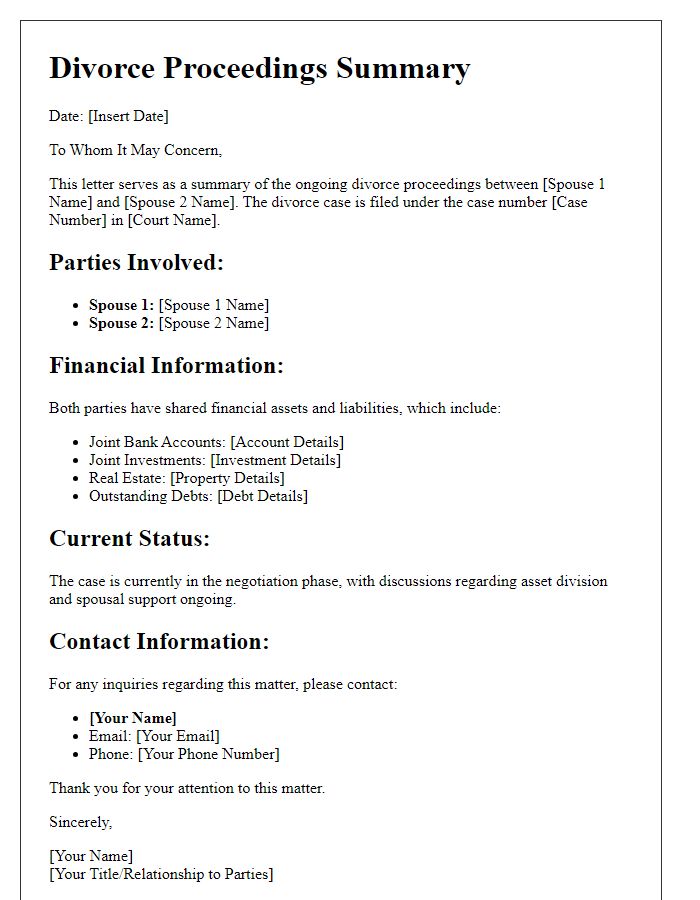
Letter template of divorce proceeding announcement for community organizations
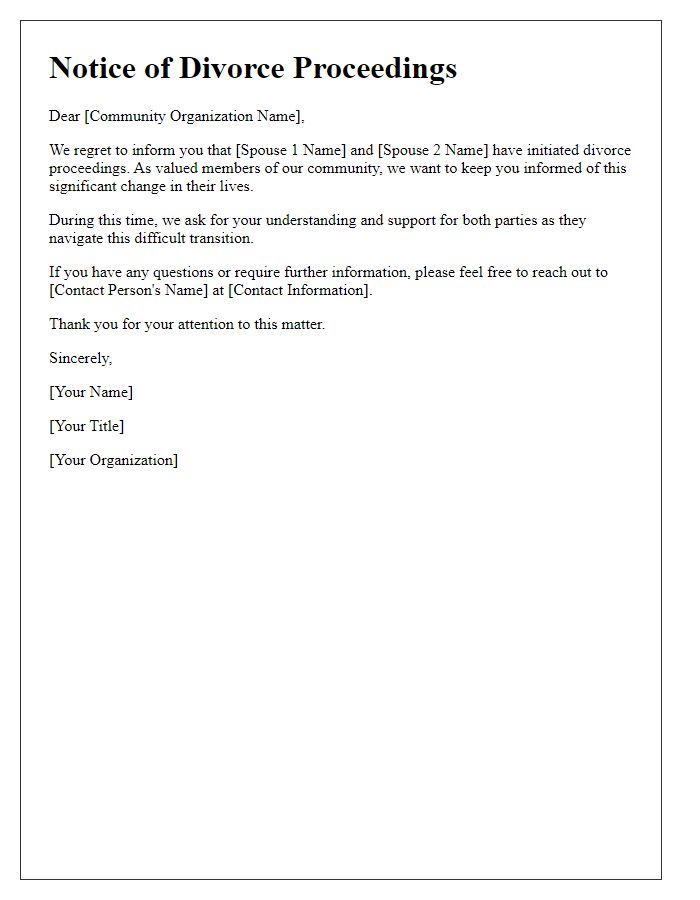
Letter template of divorce proceedings reminder for mediation appointments


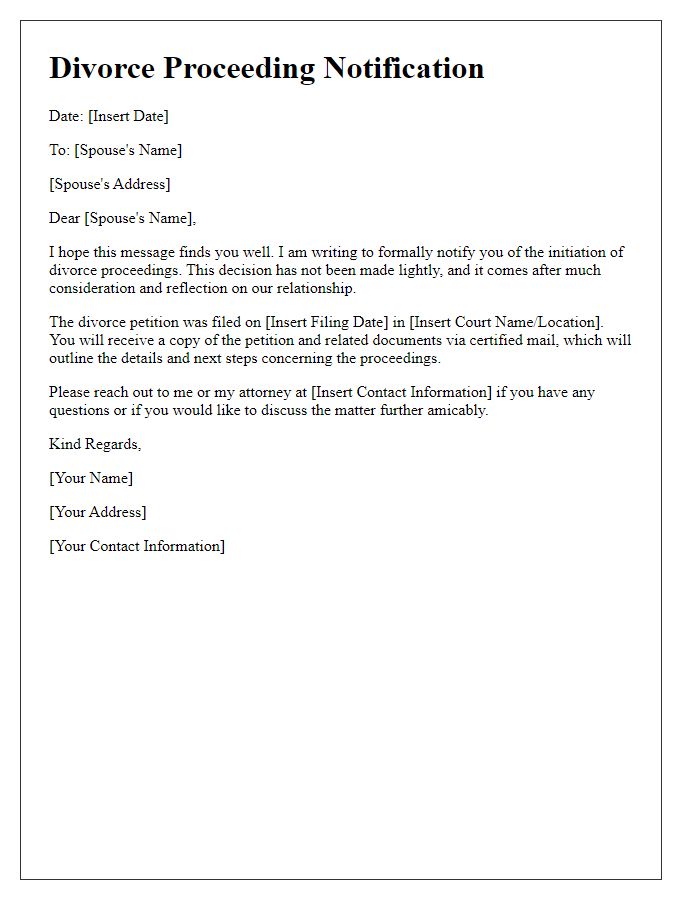

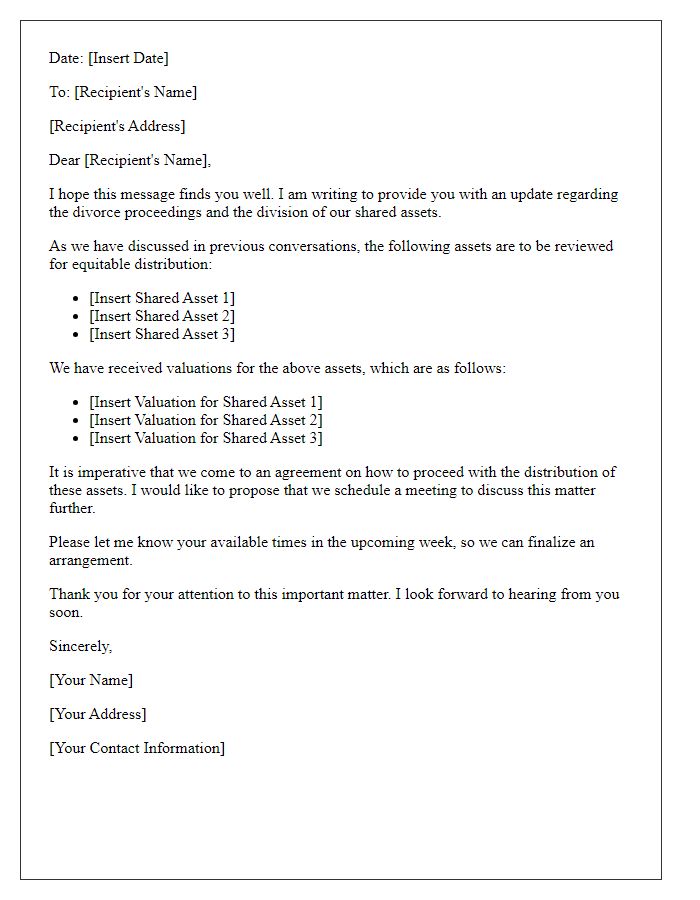
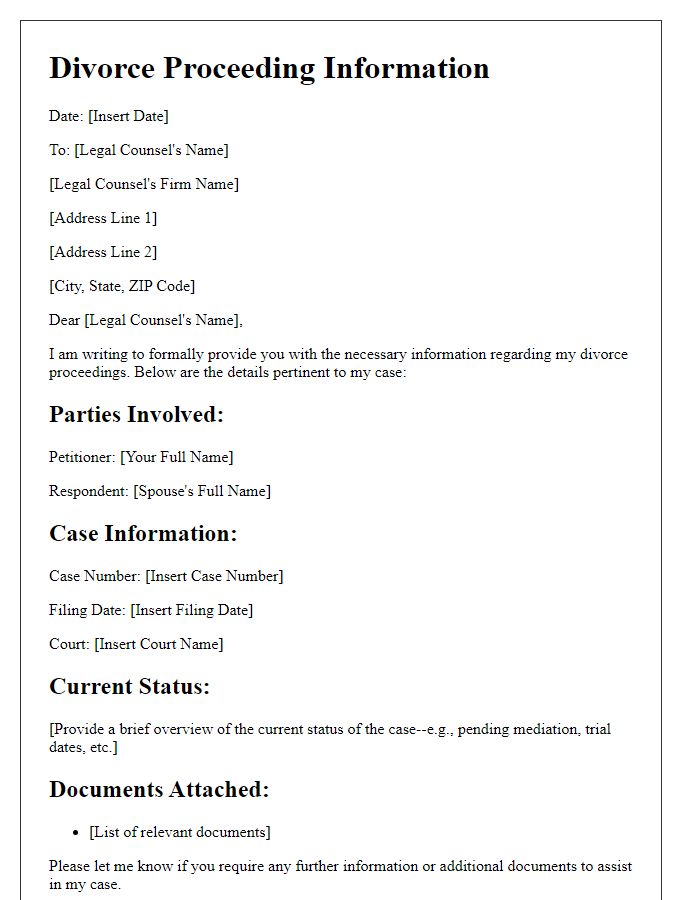
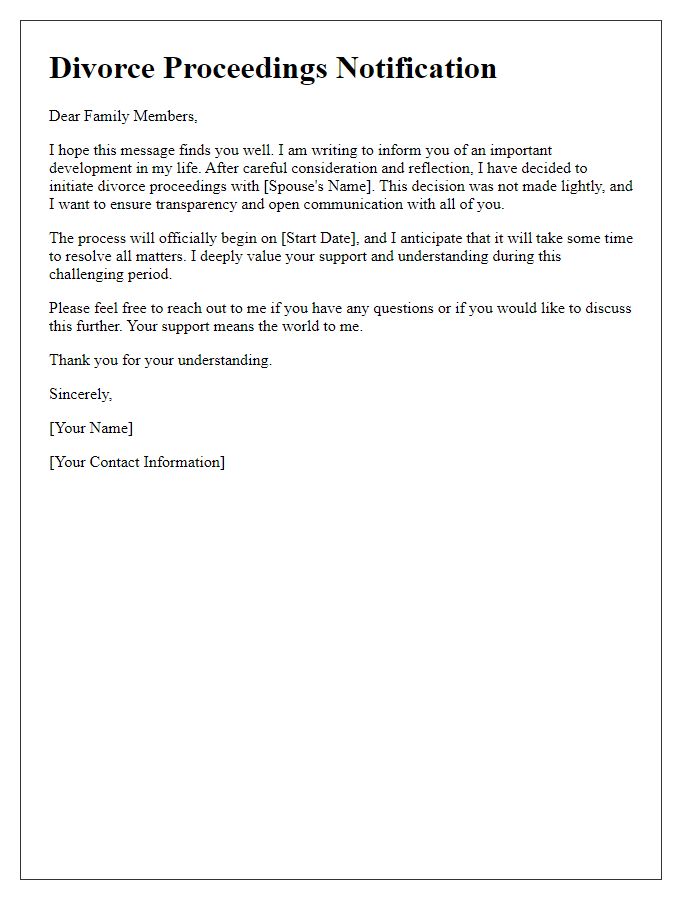

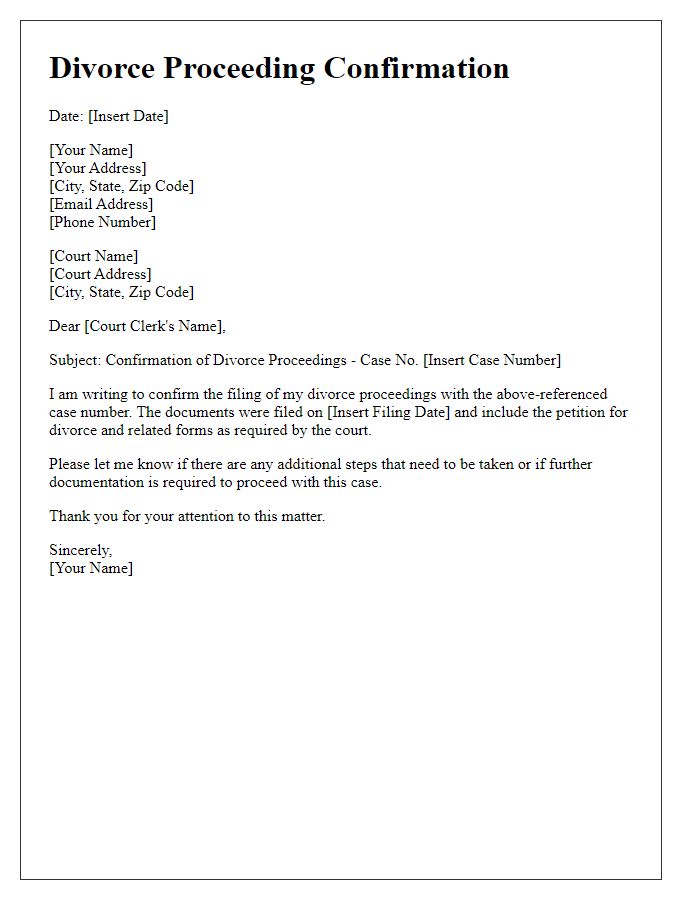


Comments